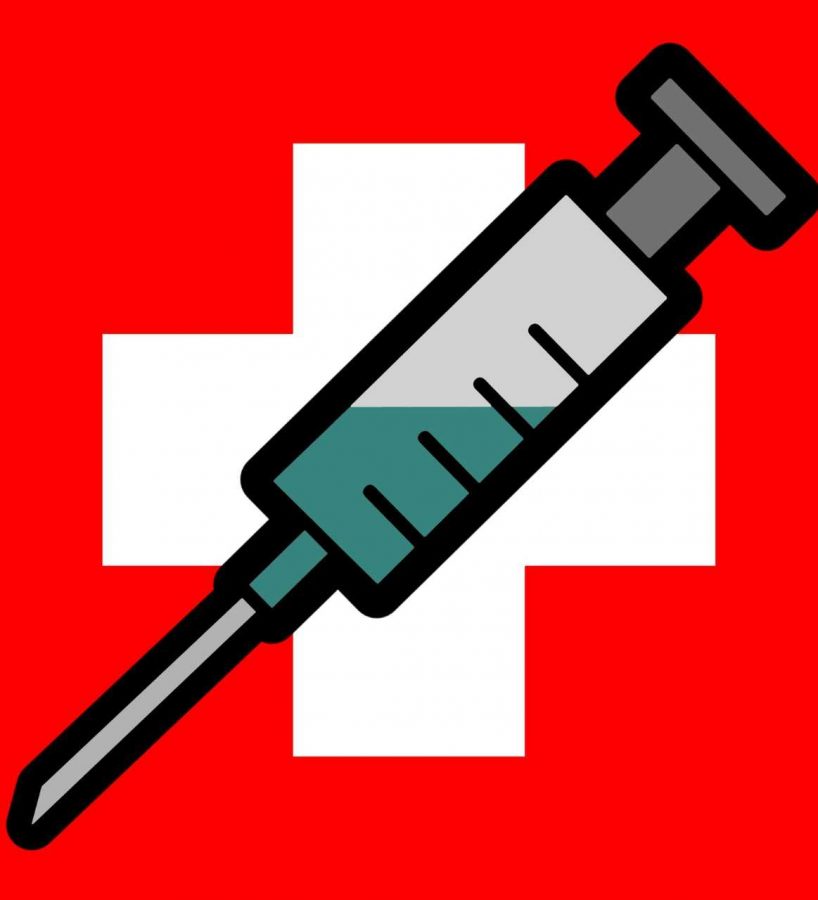Measles Outbreak Reaches New Haven
On Monday, Feb. 4, Yale-New Haven hospital had its second confirmed measles case of the season. The patients are both adults, though hospital officials would not say if the two people were related or had been in contact with each other.
These cases are the first of the year, with only three cases on record in Connecticut for 2018.
According to Mayo Clinic, Measles is a highly contagious disease that usually takes anywhere from seven to 21 days to start showing symptoms. Symptoms begin with a mild to moderate fever, runny nose, red eyes, and white spots inside the mouth, followed by red spots all over the body. A person with the virus can be contagious up to four days before the rash even appears. The safest way to combat the disease is to get vaccinated. In Connecticut, students must be vaccinated to attend school and colleges, but exemptions can be made for religious beliefs.
“I had heard about the recent outbreak, but I didn’t realize it was here in Connecticut,” said Zoe Arminger, a freshman criminal justice student.
The measles disease was officially eliminated in the United States in 2000, but a spike in anti-vaccinators has brought the disease back. According to the Center for Disease Control (CDC), there have been 101 confirmed cases since Jan. 1. These outbreaks have been seen in California, Colorado, Georgia, Illinois, New Jersey, New York, Washington, Texas, and Oregon, as well as Connecticut. The increase on choosing not to vaccinate is based partly on a claim that the vaccination leads to autism. That theory has been debunked.
“Parents these days have such a blatant disregard for the well-being of their children, in terms of vaccination. It is irresponsible for them to think they know better than doctors and the research that confirms vaccinations do not cause autism and other ‘side effects’ they believe come with vaccines,” said Meredith Burkhart, a freshman criminal justice major.
Dr. Nick Bennett with Connecticut’s Children’s Medical Center, says the study linking vaccines to autism was “flawed and a scam at the hands of an English doctor.”
“He was not trying to say the measles vaccine causes autism,” Bennett told WTNH television station in New Haven. “He was trying to say this vaccine causes autism and my vaccine won’t. He was totally discredited. He was struck off the medical register and he is not a doctor anymore.”
University health services department staff says that if a student has been vaccinated, that student is protected. One dose of the vaccination is about 93 percent effective and the two doses are about 97 percent effective at preventing measles. Even if a student comes in contact with someone with the disease, a vaccination provides protection. Health services, along with all other health officials, suggest that if students haven’t been vaccinated, now is a good time.












Ashley • Feb 23, 2019 at 6:33 am
Shameful for you to think that you know the best for our kids. This country is full of lies I will never Inject my child with there poison of unknown substances going in our body. Your just as brainwashed as everybody else,yea go ahead get the vaccine you won’t get the measles. And it’s not that we know better than a doctor we are just skeptical and prefer not to use it everyone has a right to do what ever they want. Your probably just on a mission to get everyone vaccinated and your helping this devious government.. me my family will never get the flu or measles vaccine and we have been fine all our lives. Say no to the Yankees